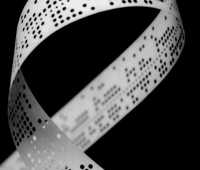|
This event is part of the EP Software Seminar series. Its role is the dissemination of results from software activities in the context of EP, as well as external high-profile presentations for relevant technologies. Its topics include software algorithms; hardware-related code aspects; and software engineering topics, from any area of data processing applications such as reconstruction, simulation, online software and triggering, or data analysis and modeling. To submit proposals for future topics please head to Nomination page. |
